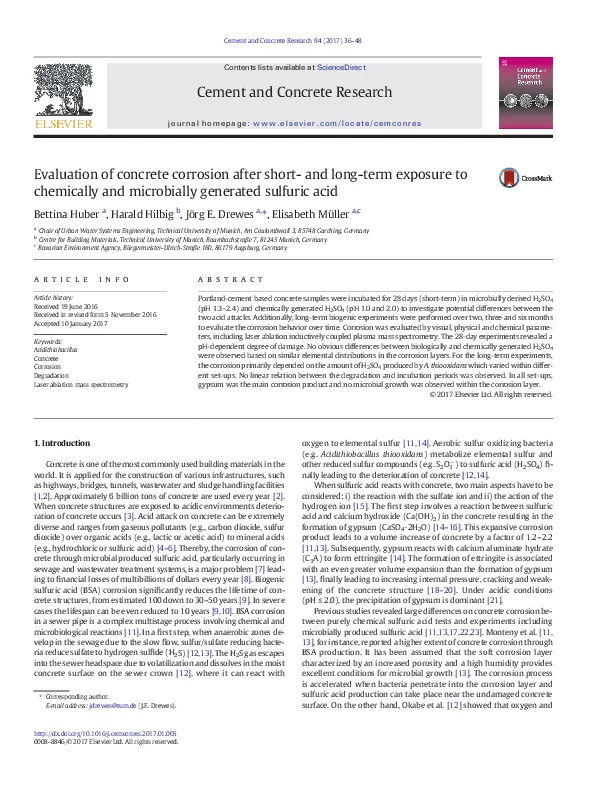Portland-cement based concrete samples were incubated for 28 days (short-term) in microbially derived H2SO4 (pH 1.3–2.4) and chemically generated H2SO4 (pH 1.0 and 2.0) to investigate potential differences between the two acid attacks. Additionally, long-term biogenic experiments were performed over two, three and six months to evaluate the corrosion behavior over time. Corrosion was evaluated by visual, physical and chemical parameters, including laser ablation inductively coupled plasma mass spectrometry. The 28-day experiments revealed a pH-dependent degree of damage. No obvious differences between biologically and chemically generated H2SO4 were observed based on similar elemental distributions in the corrosion layers. For the long-term experiments, the corrosion primarily depended on the amount of H2SO4 produced by A. thiooxidans which varied within different set-ups. No linear relation between the degradation and incubation periods was observed. In all set-ups, gypsum was the main corrosion product and no microbial growth was observed within the corrosion layer.
